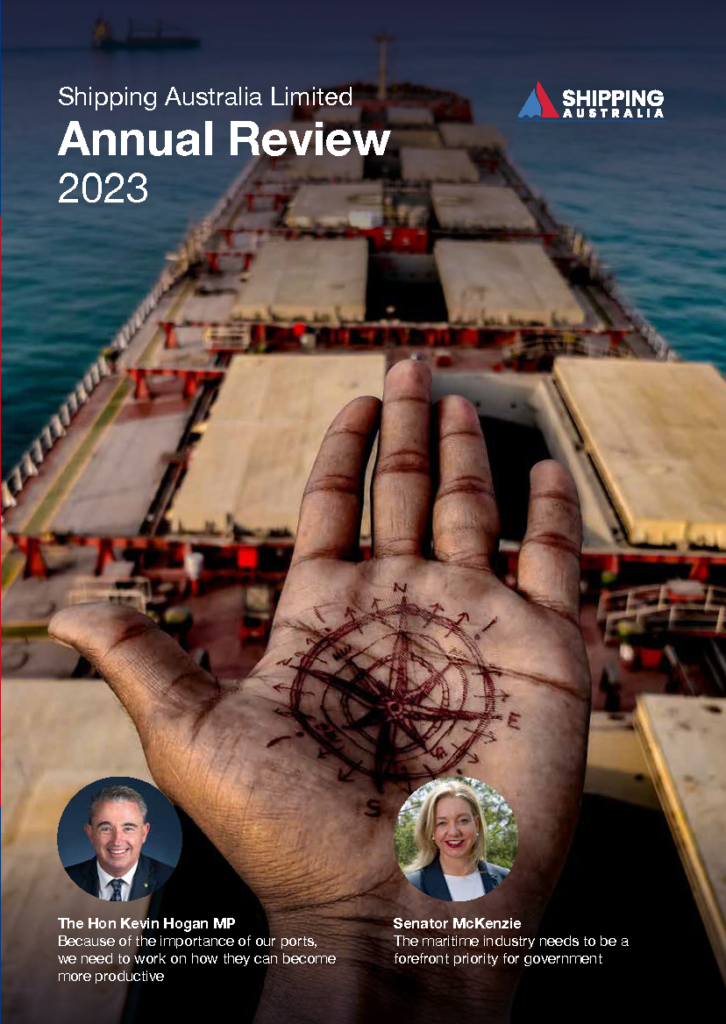
Carl W Bentzel, a commissioner of the US Federal Maritime Commission, has stated that the US FMC intends to use “much of what [the Digital Container Shipping Association] has done as a template for emerging national standards for intermodal maritime data, from point of origin to ultimate destination”.
Commissioner Bentzel added that DCSA standards provide an invaluable tool for achieving standardized, digital data communication in the industry.
The DCSA has been collaborating with the Commission on the Maritime Data Transport Initiative, which aims to identify how constraints on data communication impede the flow of ocean cargo and add to supply chain inefficiencies.
The Commission will propose the use of common data standards and definitions as a means to harmonize digital data sharing and to streamline information exchange across the maritime supply chain.
In an interview with the DCSA, Commissioner Bentzel noted that there were falls and surges in cargo throughput because of the COVID pandemic, and these changes in volumes created “extreme resource management challenges at the ports of Los Angeles and Long Beach”.
The Commissioner added that it became apparent that there is a data communication problem, “tremendous amounts of data were being generated with no common data lexicon and no timely method for sharing it with other stakeholders engaged in moving the cargo and with the public,” which led to the creation of the creation of the Maritime Data Transport Initiative.
Much of the collected data is stored in different formats, can be mis-described and cannot be “sufficiently or efficiently” provided to other stakeholders.
It became clear from consultations that much of the data would need to be harmonised.
“DCSA standards provide an invaluable tool for achieving standardized, digital data communication in the industry,” the Commissioner said, adding, “We are not going to reinvent the wheel. Our intention is to use what already exists and works in practice. We want to make sure there are harmonized definitions and a structure around them. It should therefore not be difficult for stakeholders to comply”.
The US FMC is now working on analysing input from stakeholder meetings and will share its results at the end of the northern hemisphere summer. That will be followed by another opportunity for consultation before recommendations are published.
“These recommendations will outline which data needs to be exchanged by maritime transportation stakeholders and according to which standards. The standards will focus on the exchange between cargo owners and stakeholders moving the cargo, as well as the information that needs to be exchanged in real time or near real time at different points along the supply chain,” the Commissioner said.
The US Federal Maritime Commission is a independent agency based Washington DC in the United States. It is responsible for the regulation of ocean freight to the United States. The US FMC has its origins in World War 1, when the United States Shipping Board was created in 1916 as an explicitly biased and protectionist body set up to protect US shipper interests. There have been subsequent versions of this organisation, and, in its current form, it was founded by the Kennedy Administration in 1961 by Executive Order. One of the FMC’s roles is to “a forum for exporters, importers, and other members of the shipping public to obtain relief from ocean shipping practices”. It also has an oversight and advisory committee comprised of 12 exporters and 12 importers – but, as at the time of writing – no ocean carriers. So it is fair to say that the US FMC remains an explicitly biased and protectionist body today.
The DCSA is a non-profit, independent organisation established in 2019 by several of the largest container shipping companies. Members include MSC, Maersk, CMA CGM, Hapag Lloyd, ONE, Evergreen, Yang Ming, HMM and Zim. Most of these companies are also members of Shipping Australia.


